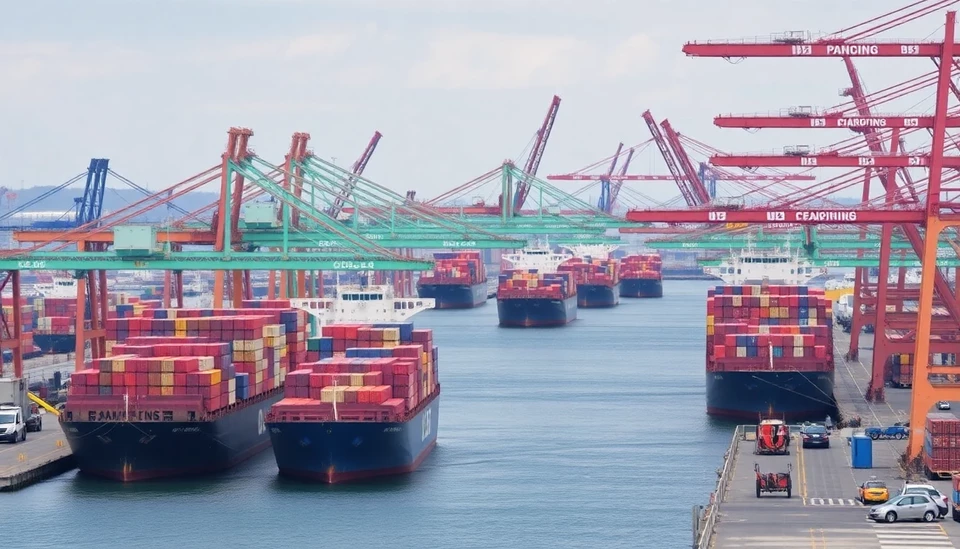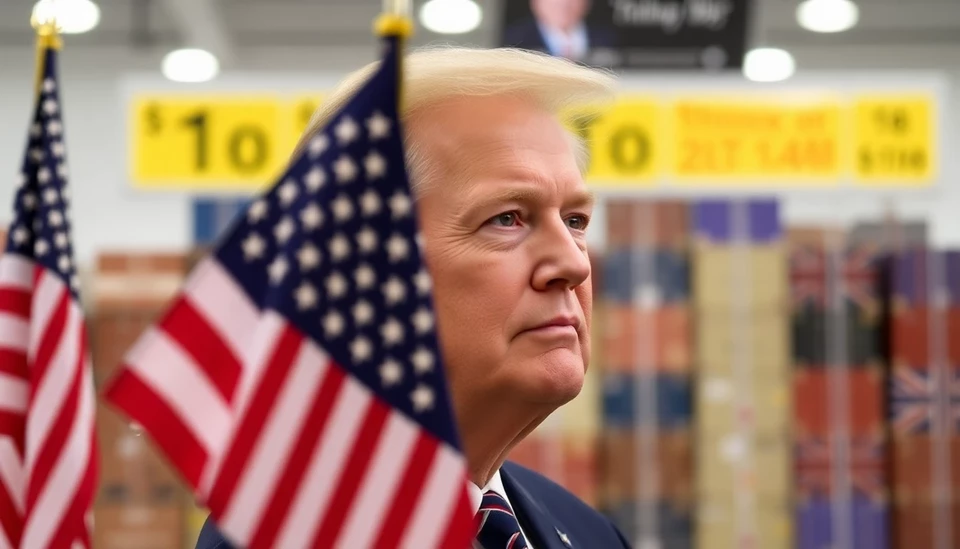
China Halts U.S. Pork Imports as Tariff Impact Triggers Price Surge
In a surprising turn of events, China has announced the cancellation of several shipments of U.S. pork, a move attributed to the escalating tariffs that have significantly inflated prices. The decision signals a worrying trend in trade relations between the world's two largest economies, particularly amidst an ongoing backdrop of heightened tensions.
Continue reading
India Warns Tariffs May Slower Economic Growth by 0.5%
In a recent statement, the Indian government has raised concerns that impending tariff increases could potentially trim the country’s economic growth by as much as half a percentage point. This revelation comes as part of a broader narrative surrounding trade dynamics and economic stability amidst ongoing global tensions.
Continue reading
Trump's New Measures Against Chinese Cranes: A Potential Strain on U.S. Ports
In a bold move impacting trade dynamics, former President Donald Trump has identified Chinese-made cranes as a target of economic scrutiny. This initiative stems from widespread concerns regarding national security and the need for American businesses to maintain competitive advantages in the shipping and logistics sectors.
Continue reading
US Imposes New Tariffs on Solar Imports from Southeast Asia: A Shift in Trade Dynamics
The Biden administration has taken a significant step in the realm of international trade, announcing new tariffs on solar panels imported from several Southeast Asian nations, including Thailand, Vietnam, and Malaysia. This decision comes amid concerns that these counties are routing products to the United States to circumvent existing tariffs on Chinese solar panel imports, effectively undermining the trade policy aimed at protecting domestic solar manufacturing.
Continue reading
Lesotho Faces Economic Turmoil as U.S. Tariffs Loom on Key Exports
Lesotho, a small landlocked kingdom in Southern Africa, is bracing itself for an economic storm as the United States threatens to impose significant tariffs on its exports. This potential crisis arises under the presidency of Donald Trump, who has placed the spotlight on foreign trade practices, leading to heightened tensions between Washington and several nations, including Lesotho.
Continue reading
China Faces Declining Commodities Imports as Trade Challenges Rise
Recent reports indicate a significant dip in China’s imports of various commodities, with the exception of barrelling oil, as the nation grapples with ongoing trade issues. The shift in import trends has raised concerns among economists and industry observers about the broader implications for global markets and China's economic resilience.
Continue reading
US Port Imports Expected to Decline as Tariff Pressures Mount
The busiest port in the United States, the Port of Los Angeles, is bracing for a significant decline in imports next month due to the impact of increased tariffs on goods. This anticipated drop is expected to disrupt supply chains and create challenges for retailers and manufacturers across the nation.
Continue reading
Trump Raises Tariffs on Small Parcel Imports from China: Implications for Trade
In a decisive move that is set to reshape trade dynamics, former President Donald Trump has announced an increase in tariffs on small parcel shipments from China. This latest escalation in tariff rates comes amid ongoing tensions between the United States and China, primarily over trade practices and economic policies.
Continue reading
US Tariff Revenue Gains Face Challenges from Trade Decline
The recent analysis of the United States' tariff revenue reveals a concerning trend as gains from tariffs are increasingly threatened by a decline in trade volumes. Despite initial boosts in revenue from tariffs imposed during recent trade conflicts, the overall trade dynamics suggest that the benefits may be short-lived.
Continue reading
Shoppers Rush to Stockpile Italian Olive Oil and Capers Ahead of Imminent Tariffs
In a frenzy reminiscent of pre-holiday rushes, consumers are racing to stock up on Italian olive oil and capers as impending tariffs threaten to inflate prices significantly. Reports indicate that grocery store shelves dedicated to these staple ingredients are rapidly becoming bare, as shoppers prepare for anticipated increases in costs that could follow the imposition of new tariffs on food imports.
Continue reading